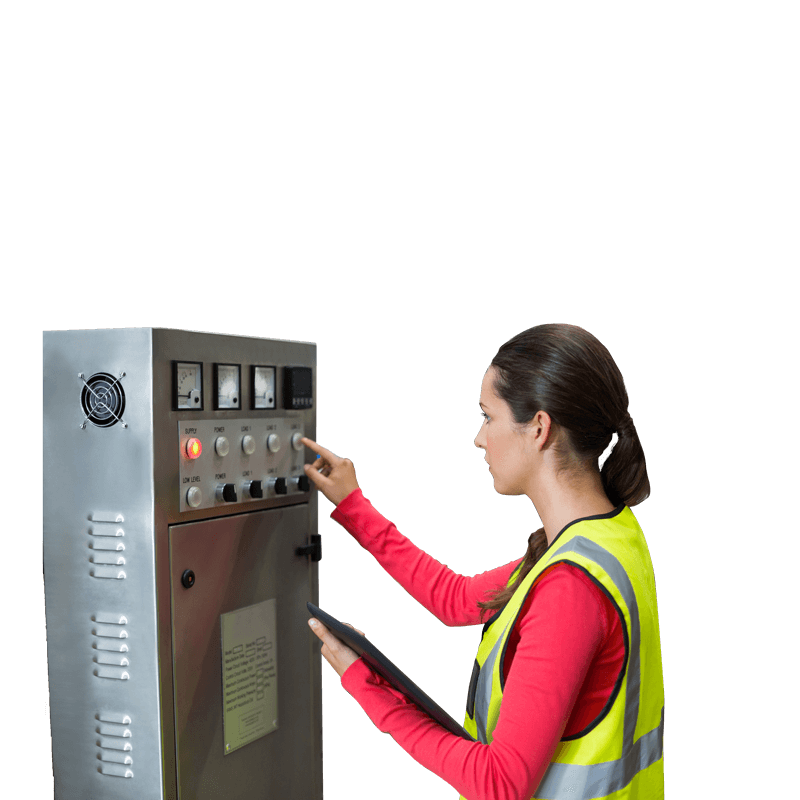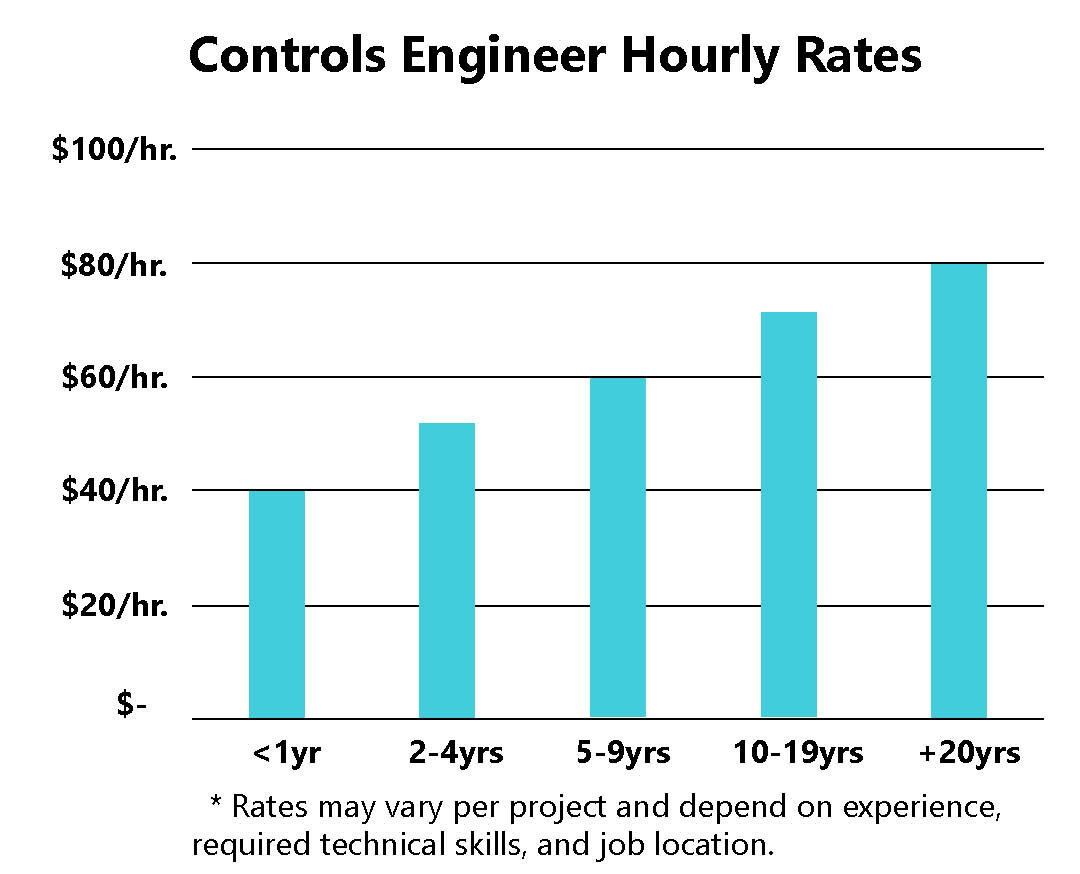welcome to joiner CAREERS
Controls Engineering Jobs
View our controls engineering jobs that are available on a project-by-project basis. As a controls engineer, you use your automation expertise to develop new control systems, troubleshoot automation issues, and certify that projects meet cycle time and are safe for operating conditions.
As a contract controls engineer, you will have the chance to work on unique industrial projects, offering new automation system challenges and employment opportunities for growth. When self-employed, contract controls engineering roles can provide great flexibility and freedom, which are not available in more conventional controls engineering jobs.
Contract Controls Engineering Jobs
We are helping self-employed contract controls engineers display their skills on our platform. The rise of automation has caused a high demand for controls engineering careers, which have become a vital component for programming control systems in most industries. As an automation controls engineer using our engineering service platform, one can expect to gain vast experience in the industrial automation industry by using many different automated control systems.
Controls Engineer Educational Requirements:
Meet new clients with the JOINER Services platform and expand your career as a controls engineer
4-YEAR BACHELOR’S DEGREE
- Systems Engineering
- Automation Engineering
- Electrical Engineering
- Computer Science
- Electrical Engineering
- Software Engineering
2-YEAR ASSOCIATE DEGREE
- Systems Engineering
- Automation Engineering
- Electrical Engineering
- Computer Science
- Electrical Engineering
- Software Engineering
CONTROLS ENGINEER PROFESSIONAL CERTIFICATION
OR +2 YEARS OF INDUSTRY EXPERIENCE
- Controls Technician
Find controls engineering jobs?

Controls engineers prepare systems to customer specification requirements.
Controls engineers should have some knowledge of the recommended controller brands listed below:
- Rockwell Automation (Allen Bradley)
- Siemens (TIA Portal)
- Omron Automation
- Mitsubishi
- Beckhoff
- Inductive Automation (Ignition)
- Bosch
Experience in types of network connections:
- Ethernet
- DeviceNet
- Profibus
- Protocol
- Interbus
Types of controllers used in industrial automation:
• Programmable Logic Controllers (PLC)
• Distributed Control System (DCS)
• Programmable Automation Controller (PAC)
• Intelligent Electronic Devices (IEDs)
• Supervisory Control and Data Acquisition (SCADA)
A controls engineer’s job description will state they perform various automated tasks and serve as the eyes and ears of these complex industrial automation systems. Contract controls engineers are responsible for any project requirements related to the process control of a client’s automated system.
Controls Engineering Career Path:
CONTROLS DOCUMENTATION
Logic backups and record keeping play critical roles in the automation controls engineer plays with any automation system. This will require the control engineer to have experience in Microsoft Office and use other programs like process control documentation software. All of the controls systems in a client’s facility will be required to have and maintain proper documentation, and it is up to the contractor to keep them at or above the required standards.
CONTROLS DIAGNOSIS
Recommend repair procedures and fix equipment that has failed. These control systems are often difficult to debug or troubleshoot. Therefore, the controls engineer must understand the background logic of the system they are programming. They must work in the electrical control panel to debug an automated system with or without an electrical engineer.
CONTROL SYSTEM PROGRAMMING
The essential function in any job description of a control engineer is that they can use ladder logic and program a system. They must know what procedures should start and stop the control system and when functions need to be triggered. A controls engineer must think about continuous improvement when programming an advanced control system.
AUTOMATION ACCURACY
Controls engineering jobs are at the intersection of automation and technology, and these systems need to be highly proficient. When using automation, the timing of each process is controlled down to the millisecond, so the engineer needs to control each automated system with extreme precision.
A senior controls engineer with lots of work experience will be able to identify where the PLC can make minor changes to improve the cycle time of the automated system. For those younger engineers, a great way to gain experience fast and learn these PLC tricks is to start contracting.
TESTING OF CONTROL SYSTEMS
Controls engineers must validate the system and ensure all emergency stops and strategies function correctly. Safety is the most critical task a controls engineer is responsible for on any project. Validating code to make sure it meets safety protocol is an essential part of the control engineer’s job description.
CONTROLS ENGINEERING TRAINING
Many engineers with a lot of work experience in the automation industry often train clients with PLC programming. They can train maintenance, technicians, or engineering staff, especially after installing a new system. The controls engineer must have excellent communication skills when training clients because industrial controls are challenging to learn. A senior engineer can also help develop a controls engineering training plan with a client and highlight the relevant information to that organization.

Learn about controls engineering jobs.
View this video!
OUR CONTROLS ENGINEER RATES
The career path for controls engineering is booming as automation is rising globally.
Many control engineers with robot programming experience and knowledge can easily reach annual earnings of well over $100,000.
As a contractor, hourly rates vary per project and depend on experience, technical skills required, and the project location.
The average controls engineer will earn around $85,000 per year.
Find out about controls engineering jobs!

Expectations As A Controls Engineer:
CONTROLLER CYCLE TIME IMPROVEMENTS
The goal of any control engineer is to improve a client’s throughput by working with a robot programmer or automation engineer to decrease product cycle time. These control systems may take thousands of parts to reach their peak efficiency. This is a remarkable technical skill learned over years of experience or while on multiple projects as a contract engineer.
CONTROL DESIGN
The control engineer can design or create software and HMI panels from electrical designs. They must understand different control systems to create flow charts and build mechanical layouts. Contractors must have some electrical knowledge, understand the basics of controller design, and know how the methods of their clients operate.
POWER-ON
They will debug software to the control system and ensure it applies to the client’s standard. Control engineers will review manual controls preceding full automatic, installing HMI files, and checking layouts with manual and automated functionality.
Often controls engineers will have the opportunity to work with a software engineer who can assist with any software issues. During this power-on phase, the controls engineer will walk through the automated system with other vital stakeholders, ensuring the system’s functions are all performing accurately.
TROUBLESHOOTING CONTROLS
They will debug software to the control system and ensure it applies to the client’s standard. Control engineers will review manual controls preceding full automatic, installing HMI files and checking layouts with manual and automated functionality.
Often controls engineers will have the opportunity to work with a software engineer who can assist with any software issues that may arise. They will also work closely with robot programmers or other automation engineers to ensure a safe working environment during troubleshooting.
CONTROLS ENGINEERING SUPPORT
The controls engineer’s job is to support a client’s automated assembly lines with little to no changes. The main objective during a support phase is to ensure the system has minimal downtime and the manufacturing products run efficiently. They can also provide support by training the client’s employees.
